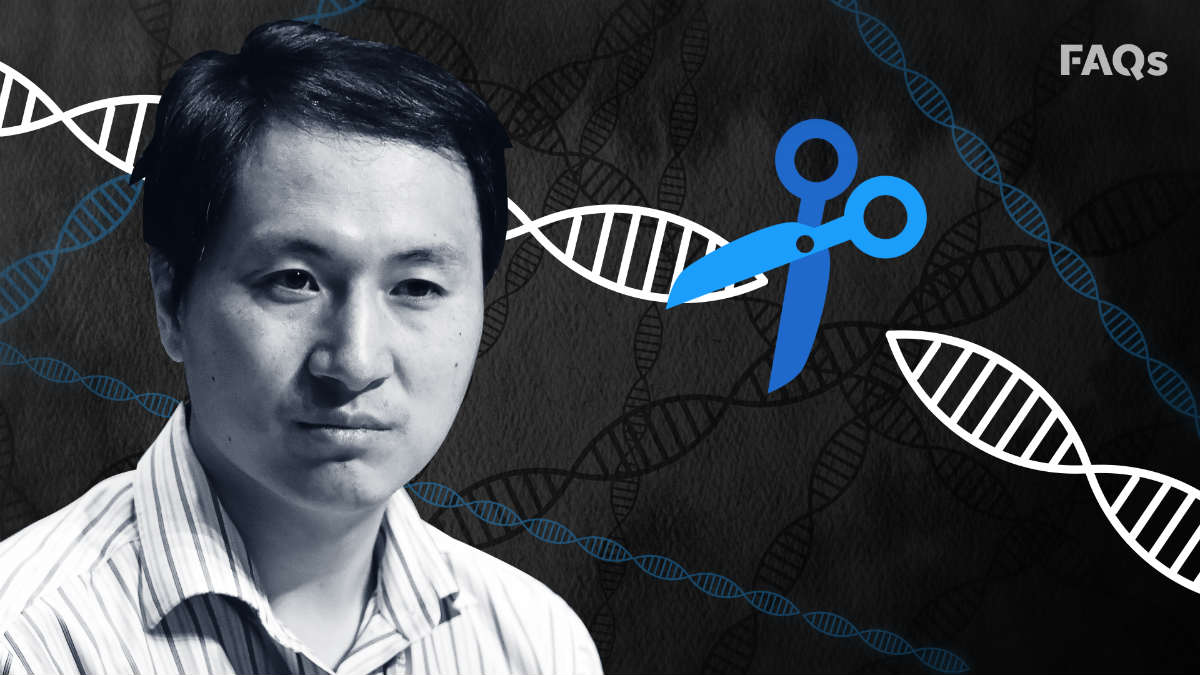
China’s first law of science: do not embarrass the government
He Jiankui, creator of ‘unethical’ gene-edited babies, has disappeared
South China Morning Post, Nov 29: “The top official said the ministry was firmly against the experiment of genetically edited babies, and will punish researchers involved in the project once the investigation is completed.”
China’s Ministry of Science and Technology has either completed its investigation in record time or decided it couldn’t wait to punish He Jiankui for embarrassing the Chinese government by producing the world’s first gene-edited babies.
Dr He, one of the country’s most prominent, wealthiest, and most successful scientists, has disappeared; his office is closed; his lab is closed; and his website is down. Justice, or at least the police, work fast in China. Hong Kong media have reported that he is under house arrest and there has been no word from him.
Why did he do it? Didn’t he foresee that it would cause an uproar amongst his colleagues and the world media?
Jing-Bao Nie, a bioethicist at the University of Otago, in New Zealand, gives some background in The Hastings Center Report.
First of all, He was a darling of Chinese science. He was chosen for the Central Government’s top science program, Thousand Talents Plan, which claims to be the “world’s most prestigious and influential state science program”. It is part of the government’s goal of boosting strategic industries – such as gene technology.
Second, He was an entrepreneur, and with funding from industry, the Chinese government and overseas investors, he had become the owner or significant shareholder in at least seven gene technology companies worth US$500 million.
Third, He’s research was taking place within the nationalistic and authoritarian framework which characterises Chinese science. Perhaps it is typical that his ethics application for the gene-edited babies contains the following paragraph:
“We ardently expect that . . . [the project] will occupy the commanding elevation of the entire field of gene editing technologies. Like the point of an awl sticking out through a bag, the project will stand out in the increasingly intense international competition of gene editing technologies. This creative research will be more significant than the IVF technique which won the 2010 Nobel Prize, and bring about the dawn of the cure for numberless severe genetic diseases.”
Jing-Bao Nie comments that this debacle opens a window on China’s approach to ethics and science. He’s transgressions are far from being the first; in a climate where scientists are exhorted to produce world firsts, ethical failures are almost inevitable.
China’s science schemes have much to do with the developing mentality that ethics is merely secondary and instrumental for cutting-edge scientific investigation and technological invention. Ethical considerations and the ultimate moral goals of science and medicine can be compromised or alienated by the unchecked pursuit of personal ambition, financial interests, interests of the Party-governments and institutions, economic growth, or national glory.
It remains to be seen whether He Jiankui will become the fall guy for the government’s obsession with outstanding results or whether he will quietly return to his lab, chastened but still ambitious to win glory for the People’s Republic of China.
Creative commons
https://www.bioedge.org/images/2008images/FB_He_Jiankui_1.jpg
- How long can you put off seeing the doctor because of lockdowns? - December 3, 2021
- House of Lords debates assisted suicide—again - October 28, 2021
- Spanish government tries to restrict conscientious objection - October 28, 2021
